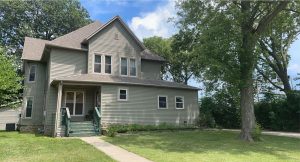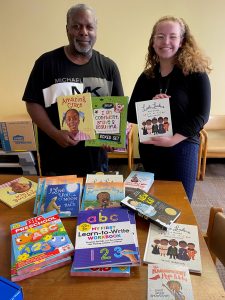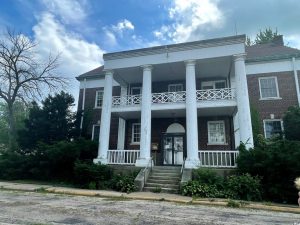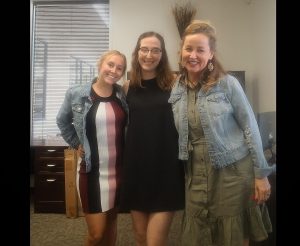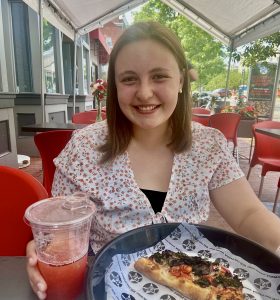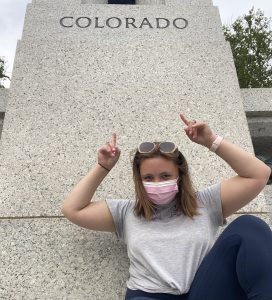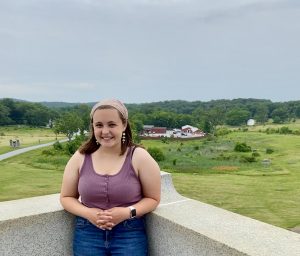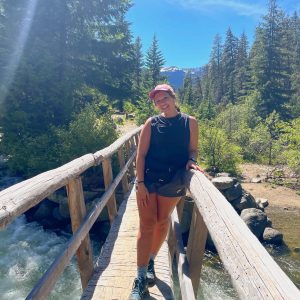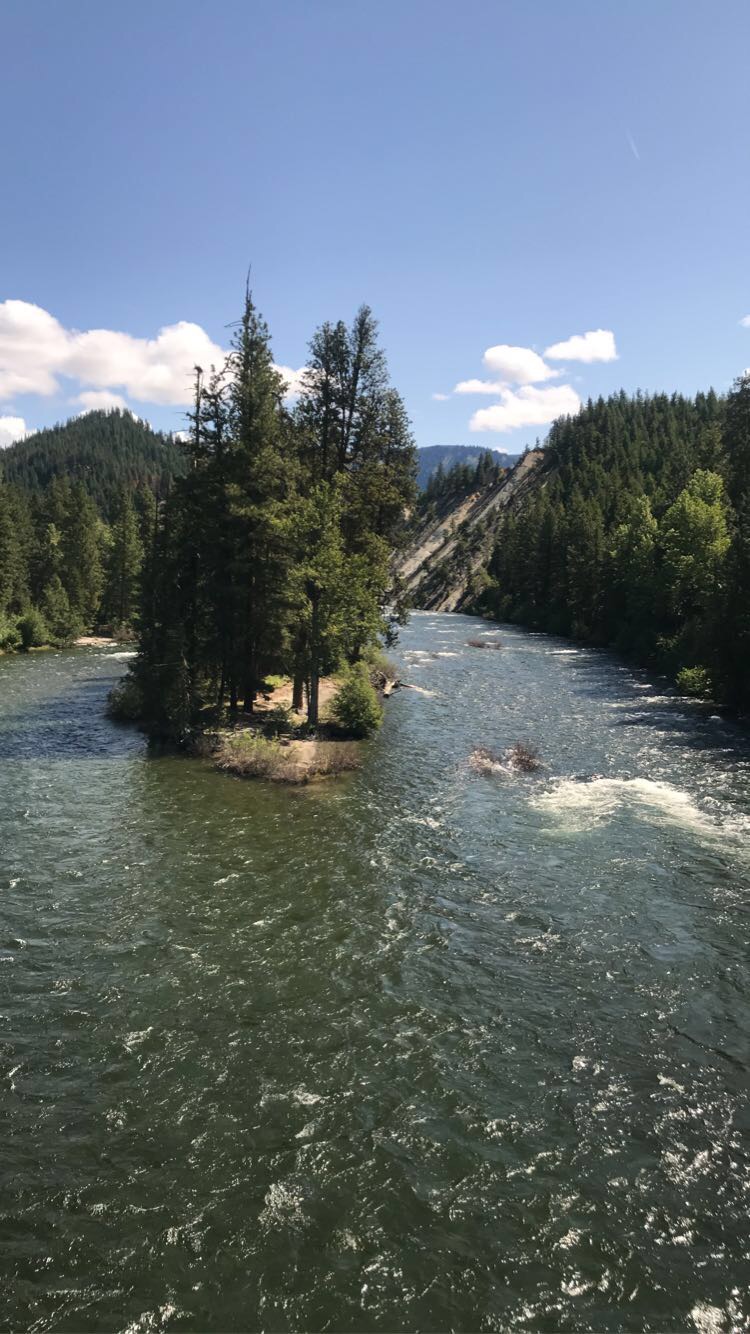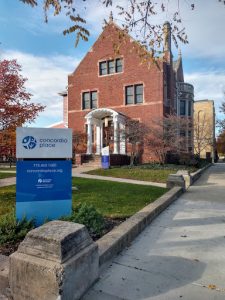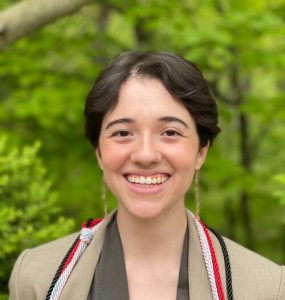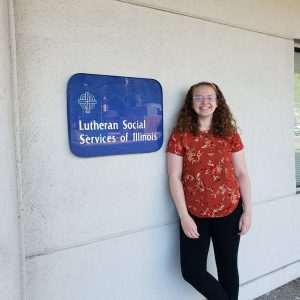I came across a saying the other day that said, “life opens up if & when you let it”, and I couldn’t help but resonate with how fitting that statement is for the season of life our society is in at the moment. Coming off of a year where most of the life was had slowed down and most things were closed, and as we are now entering a new season where we are returning to some form of what used to be our normal pace I could not be more thankful for the fact that the world is physically opening up, but I thought when I am going to let life open up for me? It’s the if and when you let it part of this statement that I’ll be reflecting upon throughout my Blog Post.
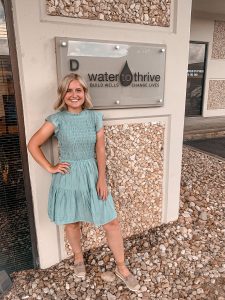 This Fall I will be a Senior at Valparaiso University, majoring in Elementary Education and minoring in Special Education. I have known I wanted to be a teacher since as early as I can remember, and have often only placed myself into opportunities that allowed for me to continue developing my teaching skills and that reaffirmed my passion to pursue a career in the education field.
This Fall I will be a Senior at Valparaiso University, majoring in Elementary Education and minoring in Special Education. I have known I wanted to be a teacher since as early as I can remember, and have often only placed myself into opportunities that allowed for me to continue developing my teaching skills and that reaffirmed my passion to pursue a career in the education field.
You see, I actually had little to no interest in going through the CAPS Application process because I thought it had nothing do with my intended career path. During my time at Valparaiso University, I had seen my peers go through the CAPS Application process and I would always think “How cool is that?! But it’s not for me.”
Then one day, I received an email from the ILAS notifying me I had been nominated by a professor of mine to potentially consider going through the CAPS Application process. I was incredibly apprehensive and it took a lot of self convincing to finally fill out the application. I still wasn’t sure how it fit within my calling to be a teacher, but I kept reassuring myself with the fact that one of my professors thought I would be fitting for this experience.
With hitting the send button on my application, I would step outside of the comfort I had found in my very straight and narrow path to becoming a teacher and for the first time place myself into a professional opportunity that I thought wasn’t education based.
Needless to say, when going through the CAPS Application process and looking at the potential internship matches I still tried to find ones that had something to do with education and tried to fit myself inside of this box when this was an opportunity that was intended to push me outside of my comfort zone.
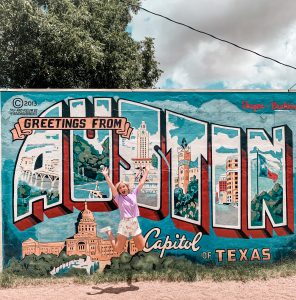
In turn, the internship I ended up being drawn to the most and ultimately matched with had nothing to do with teaching, children, or education whatsoever. With that being said, I was excited to find out that to my surprise I was a multi passionate individual discovering passions of mine I didn’t even know existed due to the box I had so comfortably put myself in.
Then suddenly, it all made sense and I understood how this experience fit. Being multi passionate, and stepping outside of my comfort zone would ultimately make the best teacher for my future students one day.
When I think back to my academic experiences, I think of my grade school teachers and collegiate professors as some of the coolest people I’ve had the opportunity to meet but not because of how they taught the content knowledge, but because of the authentic life experiences and testimonies that they would compliment the textbook curriculum with. These life experiences and testimonies only came from them stepping outside of their teacher comfort zone, and exploring more of what life had to offer.
And because of the experiences they would share throughout their instruction, I often felt my learning exceeded far beyond the four physical walls of the classroom.
I had an influential, still anonymously named, professor push me in the direction where novice educators begin to find and establish their footing on the path to becoming the most impact resource to their future student’s learning.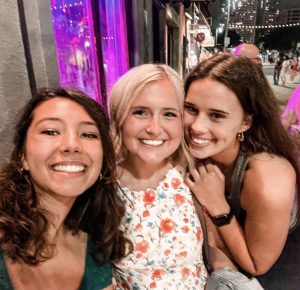
Teachers know the heart of their students best, and are the firsthand witnesses to a student’s abilities as well as the potential a student holds.
I am so thankful my professor saw the potential in me for this experience that I did not see for myself within the CAPS Program.
Because I decided to pursue this opportunity, with a little push, I have been able to make connections with my placement organization nearly 1,175 miles away and be able to be apart in supporting their philanthropic mission while also visiting a new place for the first time, and making new friends along the way that I wouldn’t have had the chance to meet if it weren’t for the experience of being a CAPS Fellow.
Now you won’t see me changing my career path to something in the nonprofit sector anytime soon, but through this experience I feel the calling and purpose I went in with beforehand has only been reaffirmed. I cannot wait to share the experiences I have had with Water to Thrive with my future students when we learn about Austin, Texas during our Geography Unit, or learning about water during our Science Class, or when we are talking about how it might be a little nerve wracking to try things outside of our comfort zone.
Just when I thought I was placing myself into a professional opportunity that wasn’t education based, it had everything to do with education. Throughout this summer being a CAPS Fellow and my week on site in Austin, Texas I learned more than I can even begin to put into words. 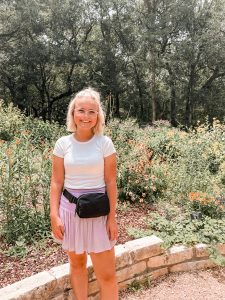
Lastly, and in conclusion, the most important thing I have learned throughout this whole experience is to let life open up, and I’ve decided that right now is a better time than ever to start taking every opportunity presented to me, because as we’ve been reminded this past year opportunities aren’t always guaranteed. I am so thankful that I have learned and decided to let life open up when I did, but it wouldn’t have been without a little “lesson” from a noteworthy teacher. Because of this, and the learning experience this teacher pushed me towards, I know I will be a better educator myself one day because of it.

